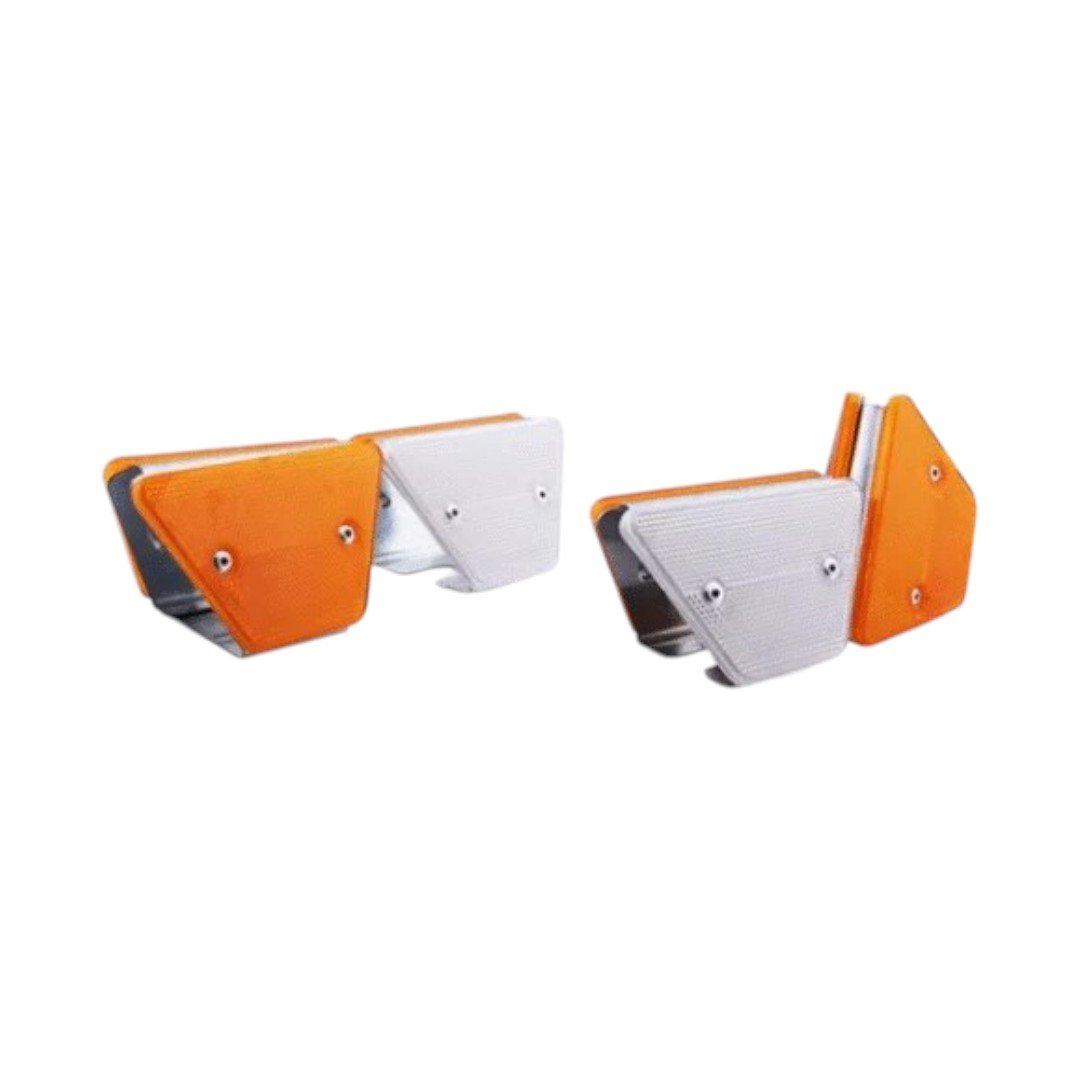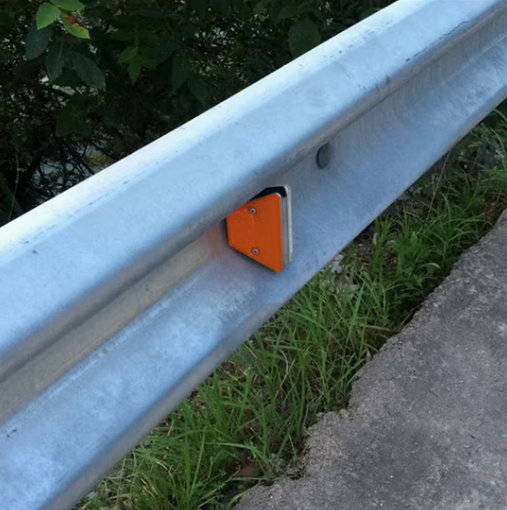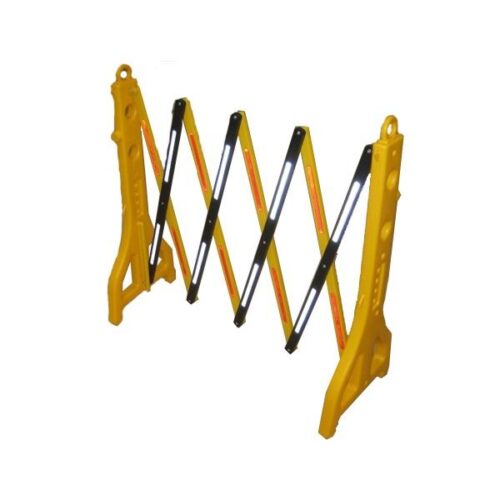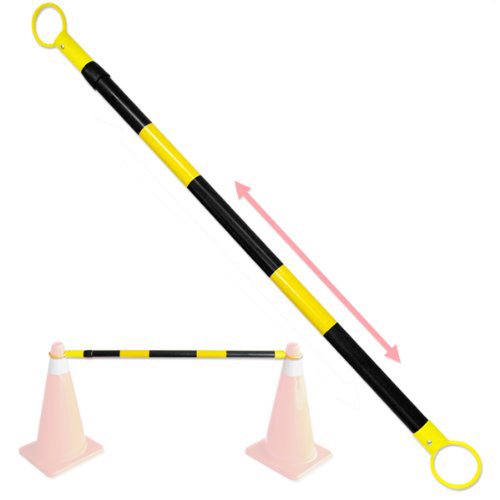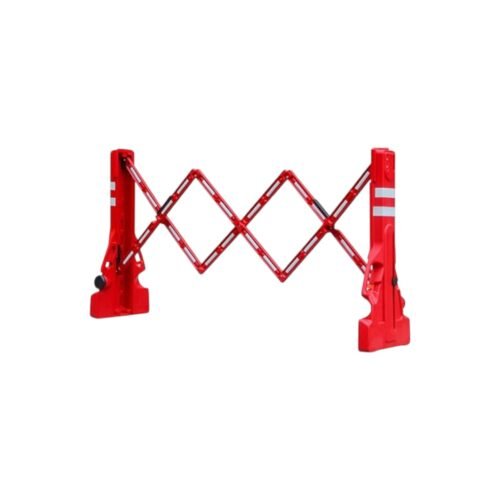-
Highway reflective sheeting outline markings are essential components of traffic safety facilities.
-
Their primary function is to enhance drivers’ visual recognition at night or in adverse weather conditions.
-
They work by reflecting light back toward the driver, improving visibility.
-
This increased visibility helps reduce the risk of traffic accidents.
-
Reflective delineators are typically installed at:
-
Roadside edges
-
Median strips (separation strips)
-
Key traffic nodes and intersections
-
-
They serve to clearly define road boundaries and indicate proper driving directions.
Twin Reflector Guardrail
Description
-
These signs use high-intensity reflective materials that emit bright reflective light when illuminated by vehicle headlights.
-
This reflection alerts drivers to road conditions and promotes driving safety.
-
The design of reflective sheets should follow traffic engineering principles to ensure effective performance in various weather conditions.
-
Reflective delineators are being increasingly applied in highway development.
-
Benefits of using reflective delineators include:
-
Improved night driving safety
-
Enhanced traffic flow efficiency
-
-
Studies show that well-placed reflective signs significantly reduce accidents caused by poor visibility or visual misjudgment.
-
In summary, highway reflective sheeting delineators are critical in modern transportation systems.
-
Ongoing optimization of materials and design can further:
-
Increase reflective efficiency
-
Improve durability
-
Enhance overall traffic safety and flow
-

